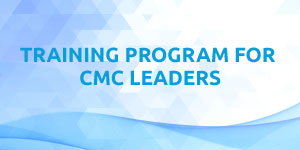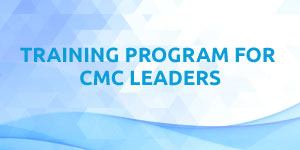Free knowledge to monitor the world of events. Have a look at our must read Blogs on Pharma, Finance, HR, Health and Cross Industry.
Procurement Auditing Processes in maximizing the business value
2022-08-16
Effective procurement procedures are essential for any business to succeed in the constantly evolving global marketplace of today. Over 30% of contracts perform poorly due to inadequate contract management, and at least 10% of corporate value is lost as a result of ineffective or inefficient procurement processes, according to the World Commerce and Contracting Association (WCC).
Procurement Auditing Processes in maximizing the business value
Effective procurement procedures are essential for any business to succeed in the constantly evolving global marketplace of today. Over 30% of contracts perform poorly due to inadequate contract management, and at least 10% of corporate value is lost as a result of ineffective or inefficient procurement processes, according to the World Commerce and Contracting Association (WCC). Proactive adaptability is required by markets; therefore, procurement auditing takes center stage. Procurement auditing develops into a force that propels innovation, expansion, and resilience in today's complex business context by exposing operational bottlenecks and encouraging innovative collaborations. This article explores auditing's transforming effects, demonstrating how it encourages smart decisions and value-driven results.

Understanding the Impact of Inefficient Procurement
The financial stability of a business might suffer greatly from ineffective procurement procedures. The effects are widespread and include everything from project delays and expense overruns to supplier conflicts and missed opportunities. These inefficiencies can harm a company's brand and diminish customer trust in addition to having an adverse impact on its financial health.
The Role of Auditing in Procurement
In order to identify gaps, risks, and opportunities for improvement in an organization's procurement activities, auditing procurement procedures entails a systematic assessment of those activities. It's a proactive strategy that aids businesses in ensuring compliance, improving transparency, and maximizing value creation. Now let's explore how auditing can alter the procurement process.
Evaluation of Performance
Comparing the actual results to predetermined performance indicators is a step in the auditing of procurement processes. This not only aids in identifying accomplishments but also points out areas that want development. By establishing benchmark measurements, organizations may continuously evaluate and improve their procurement practices, resulting in increased productivity and economic benefit.
Mitigation of Risk
The flaws in supplier relationships, contract provisions, and regulatory compliance are revealed through procurement audits. Businesses can prevent potential disruptions, legal problems, and damage to reputation through early detection of these risks and timely action. This is critical in industries where supply chain interruptions may have profound consequences.
Optimization of costs
Ineffective procurement frequently results in unnecessary spending. Organizations can find areas where spending can be optimized by using auditing to gain insights into cost breakdowns. This could entail renegotiating terms with suppliers, making use of economies of scale, or even looking into other procurement methods.
Enhancing Supplier Relationships
Audits of the procurement process also assess the quality of supplier management. Organizations can find possibilities to create more strategic relationships by evaluating supplier performance, communication, and collaboration. Developing closer ties with suppliers can improve negotiating outcomes, spur more innovation, and lower supply chain risks.
Improvement of Contract Management
As the WCC points out, ineffective contract management has a crucial role in underperforming contracts. In order to make sure that contract conditions are followed and are in line with corporate objectives, auditing is occasionally performed. Audits enable prompt interventions, renegotiations, and eventually stronger contract outcomes by keeping track of performance metrics and milestones.
Pointing Out Inefficiencies
An in-depth knowledge of the full procurement lifecycle is provided by audits. Auditors can identify bottlenecks, redundancies, and error-prone areas by carefully examining each phase, from requirement collection to supplier selection, negotiation, and contract administration. Organizations can streamline procedures and better allocate resources using this knowledge gained.
`An example that I came across in my research about Procurement Audit:
Is from an iconic brand from the automobile industry, which held the excellent effects of procurement audits. Due to concerns over the quality of a specific component of their product, the company had supply chain disruptions in the early 2000s. They started in-depth supplier audits to address the problem head-on. These audits helped to improve supplier collaboration, interaction, and quality control in addition to identifying the underlying problems.
This proactive strategy fortified its supply chain to withstand future disruptions and restored its reputation for high-quality automobiles. This provided an excellent example of how rigorous and transparent procurement audits can play a significant role in protecting brand value, enhancing operational efficiency, and developing good supplier relationships.
Conclusion
In the modern business environment, the importance of procurement auditing is undeniable. It serves as a guide, navigating companies through the complex maze of contracts, vendors, and operational intricacies. The alarming data from the WCC underscores the high cost of overlooking inefficiencies. Beyond mere compliance, procurement auditing transforms operations leading to increased efficiency, reduced risks, and higher value creation.
Evidence of its transformative power can be seen in real-world cases like Toyota's approach to supplier auditing. Leveraging procurement audits empowers businesses to fortify their supply chains, improve supplier interactions, guarantee product standards, and ensure adherence to regulations.
In an era where agility and improvement are vital, embracing procurement audits is a forward-thinking strategy. This isn’t just a monetary investment; it's a pathway to harnessing an organization's full capability, promoting strategic alliances, and building resilience against potential setbacks. In essence, procurement auditing isn't just a tool for immediate success; it paves the way for a prosperous and enduring journey in the global marketplace.
Join our upcoming Conference 'Audit Masters 2024' conducted by industry experts.
By Sasly Ahmeth, Social Media Executive & IT Support, GLC Europe, Colombo Office, Sri Lanka.
Get a feel for our events

Training Program for CMC Leaders - EU edition
14th September 2026 - 09th April 2027
Rich with practical insights and real-world applications
learn more >>
Training Program for CMC Leaders - US edition
14th September 2026 - 09th April 2027
Rich with practical insights and real-world applications
learn more >>
Pediatric Drug Development MasterClass - US edition
17-19 February, 2026
FDA and EMA pediatric decisions
learn more >>












